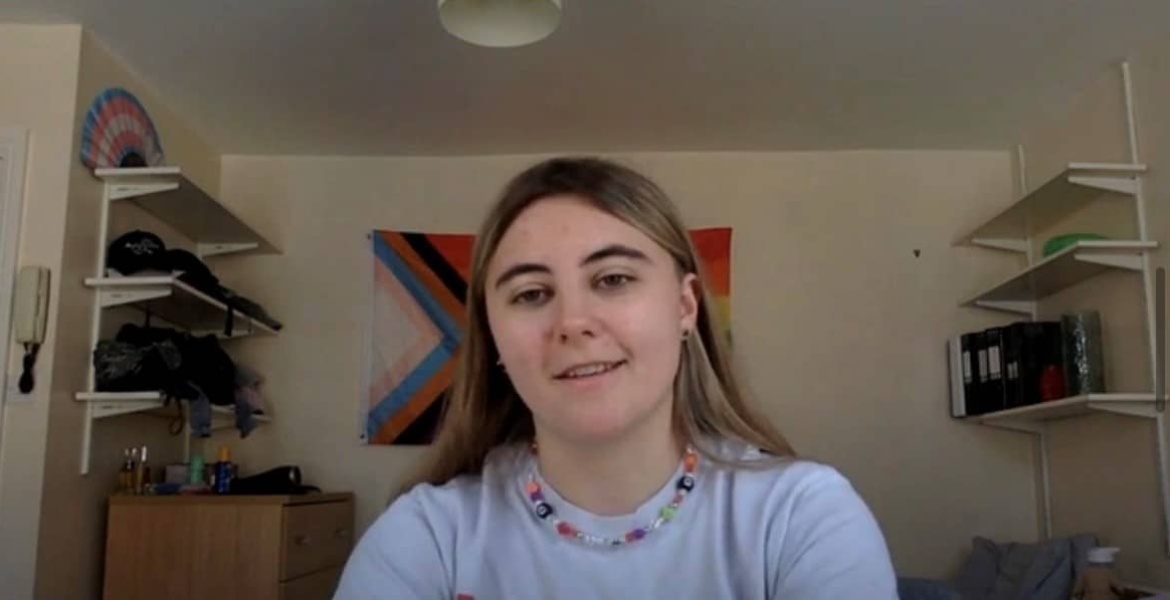Want to change the world? Study A Level Economics – Lily Danson (Class of 2019)

When progressing into Sixth Form at CHS, it’s important to choose the right subjects for your studies and future development. An element within this decision is the introduction of four new subjects to A Level students.
One of the new subjects which our Sixth Form offers is economics. We sat down with Old Waconian, Lily Danson, who graduated from CHS in 2019, studied A Level Economics, and is now finishing her third year studying Economics at Cambridge University. Lily had some insight into choosing to study economics at CHS, and some advice for those Students wanting to pick a brand new subject at A Level.
What was it like choosing a brand new subject at A Level?
Ultimately, you don’t really know what the subject will be like until you choose it. The taster days CHS offer are really helpful to get a flavour of the new subjects and what they’re about, but for me I enjoyed maths and felt like economics had some maths in it, so it seemed like a good option. It’s also about letting the teachers guide you too, they’re here to help you.
What were your perceptions of economics before you took it?
People believe that economics is very mathematical, but it can be as mathematical as you want to make it. Maths is useful for further study, but at A Level especially, the course is a good mix of essays and logical thinking. A big misconception with economics is that it’s all about money and the stock market, but only in my final year at University have I studied asset pricing and the stock market, so that demonstrates how false this misconception is.
“The misconception is that economics is all to do with money but there is a lot of calculating welfare and thinking about how you can benefit people, not just yourself.”
What were your favourite parts of the economics course at CHS?
I am quite analytical, so I massively preferred micro to macro economics. Behavioural economics is again quite interesting as it involves a lot of self directed research and engaging with the subject in a different way which you don’t get to with micro and macro. Behavioural economics kick-started my interest in economics and got me engaging with works I wouldn’t have done.
“It’s like making the world a better place.” – Mr Ian Jepson, Head of Economics & Business Management
What did you do outside lessons to expand your knowledge and discover career opportunities?
It’s really helpful to know what is going on in the world so even just flicking through The Economist when you’ve got spare time or checking the business page of the news can be really beneficial. Especially when referring to career opportunities, being able to apply what you’re learning to what’s currently going on is really important. I wouldn’t worry too much about reading all of the classics, just read what interests you.
What is one piece of advice you would give to an A Level Economics student?
Pursue the areas of economics that you enjoy. Especially when taking part in exams, it is so much easier if you have an interest in a certain area and you’re able to draw upon that knowledge and interest. Do what you enjoy, and be guided by that. There is such a wealth of different ways of thinking out there.
“Follow what it is you enjoy, don’t read something because someone else has told you to.”
To what extent do you think A Level Maths is necessary for A Level Economics?
A Level Maths is not important for A Level Economics. GCSE Maths is more than enough to get you through it. However, if you’re thinking about further study and choosing economics at University, then A Level Maths is beneficial and might be important. There is a lot of variation within the subject though, so it’s best checking entry requirements for further study online.
Do you have a favourite diagram?
I think you get a long way with a basic supply and demand diagram. Additionally, when you study economics further they tell you to think about diagrams in a different way to A Level, and focus on the core diagrams, but the supply and demand diagram will always be important.
How big of a step up is A Level Economics to studying Economics at University?
At University, you are reintroduced to the things you have studied at A Level but you think deeper about them, so in a way, across all economic courses, it is almost like starting with a blank canvas. However I think the step up is slightly bigger for an Oxbridge course primarily due to the intensity. You get to start fresh and think about concepts and ideas differently, but you have to remember that everyone is on the same playing field, and you have a community of people there to aid you. The step up is definitely a welcome change.
“Economics gives us the tools to benefit people, and it’s how we use them that’s important.”
What is your top piece of Oxbridge application advice?
Pursuing the areas you enjoy is really important for your personal statement in applying to Oxbridge, and thinking about writing your personal statement in a way in which you can express your love for your subject. If you’ve read the news a lot, that’s a good way to show you are well read and engaged with what’s going on in the world. Ultimately it’s down to showing this to your future supervisor who is interviewing you; they’re testing if they want to teach you and if you’re going to be curious and engaged in the subject. If you think about it like that, they just want someone who is curious and genuinely invested in the subject. Read widely, you never know what will pop up in an interview.
In what can traditionally be often seen to be a male- dominated field, what would you say to a current Year 11 girl who is thinking about studying Economics?
If you like economics, then that is the reason why you should study it. Don’t think about who else is doing it or if you’re the only girl, because at the end of the day, you’re the one who is doing the A Level and you’ve got to enjoy it. Don’t let other people’s choices sway your decision. If you’re thinking about choosing economics then I’d suggest researching some academics and finding a role model, because contrary to what people think, there is not a one box economist. There are a lot of amazing female economists out there, so seek them out and I think you will be surprised by what you will find. It’s worth highlighting the general misconception surrounding economics. People are drawn to it because they believe they will learn about investing and money, but that’s not the case. Generally speaking, economics is about giving us the tools to solve social problems, and if that’s what you enjoy, then fortunately, economics can be explored in whatever direction you want.
“If you’re interested in maths or politics and like the idea of thinking logically, then it’s definitely the right subject for you.”
What are the most common career paths after studying economics at University?
The most common routes are finance, consultancy and law. But there are many paths for economics. If you’re trying to figure out what path you want to take, the best piece of advice is to get experience during your time at University. I know it can be quite busy and overwhelming when first beginning further studies, but by taking the time to apply for some experience, a lot of the time you can fast track your way into a future career and find out what it is you enjoy. Insight weeks are held at big firms and they are a great way to explore the different routes of economics. Additionally, I’d say to make use of CHS’s Old Wac network. You can get into contact with someone who is in the career you’re looking to enter and get some advice, or even an internship.
Moving up to Sixth Form is an exciting and fun time! We hope this Q&A has given you an insight into what it’s really like to choose a new subject at A Level!



